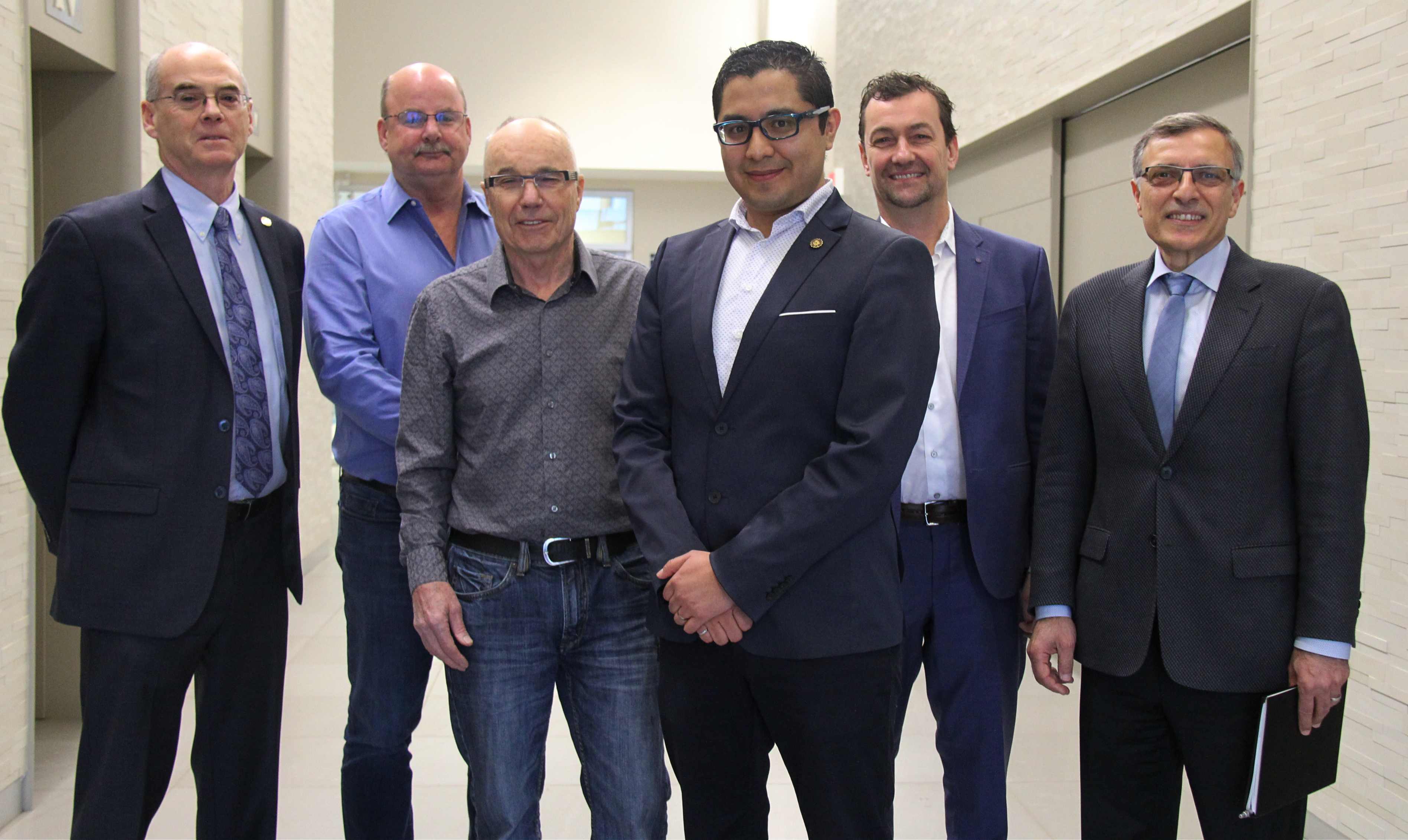
Dean of Engineering Fraser Forbes, Masonry Contractors Association of Alberta leadership members Kery Donaghey and Mirko Ambrozic, Masonry Research Chair Carlos Cruz-Noguez, MCAA member Chris Ambrozic, and Simaan AbouRizk, Chair of the Department of Civil and Environmental Engineering and School of Mining and Petroleum Engineering.
(Edmonton) For millennia, we've relied upon bricks and mortar for the essentials of life-shelter. Now, fuelled by nearly $5-million in funding, the University Faculty of Engineering is focusing on ways to make masonry more energy efficient, sustainable, and safe.
Supported by a $3-million endowment funded by the Masonry Contractors Association of Alberta (MCAA) and the Natural Sciences and Engineering Research Council, engineering professor Carlos Cruz-Noguez has been appointed as the MCAA - Northern Region Chair in Masonry Systems.
In his position as Masonry Research Chair, Cruz-Noguez is conducting and overseeing leading-edge research programs aimed at modernizing masonry.
"Our project will tackle issues of climate change, energy efficiency and resource use," he said. "We have to develop safer, higher performing masonry systems that are more energy efficient-using materials and processes that are centuries old and have a proven record-and engineer it into the next century."
The faculty has already brought in three early-career professors who are world-class experts on their fields, said Cruz-Noguez. Professors Yuxiang Chen, Douglas Tomlinson, and Yong Li have now started research projects on energy and thermal efficiency, composite walls, and reliability and simulation. The research has attracted 12 of the 17 graduate students he estimates will be needed to support masonry research at this stage-and become future industry research leaders.
"Our first major project consists of developing a new generation of high-performance masonry walls that are stronger, more durable and sustainable, with improved thermal performance and increased safety," he added.
In addition to the $3-million endowment that supports the research chair position, the program was awarded a $1.8-million NSERC research award, which Cruz-Noguez describes as "the largest masonry research funding grant ever awarded in Canada."
The team has also applied for research funding to help construct Canada's largest environmental chamber. Located in the I.F. Morrison Structures Lab at the U of A, the chamber will allow researchers to expose different building materials to environmental extremes, with temperatures ranging from 40 C to -40 C. Other planned upgrades in the structures lab will enable new earthquake and seismic testing on masonry and other materials.
Educating the next generation of masonry engineers is a key to the success of the research program, he added. Graduate students will inevitably bring their expertise to the field.
Cruz-Noguez has won three consecutive Faculty of Engineering Undergraduate Teaching Awards and won the Provost's Award for Early Achievement of Excellence in Undergraduate Teaching in 2018. He says undergraduate students are a key element of the strategic plan for the masonry program. Some undergraduates learn about masonry research through the Dean's Research Award program, while others spend their summers as researchers working under the supervision of the professors of the masonry group and their graduate students.
"I incorporate masonry into the undergraduate curriculum where it's appropriate, and we get them working with us through research programs," he said. "They are an investment. They are the next generation."